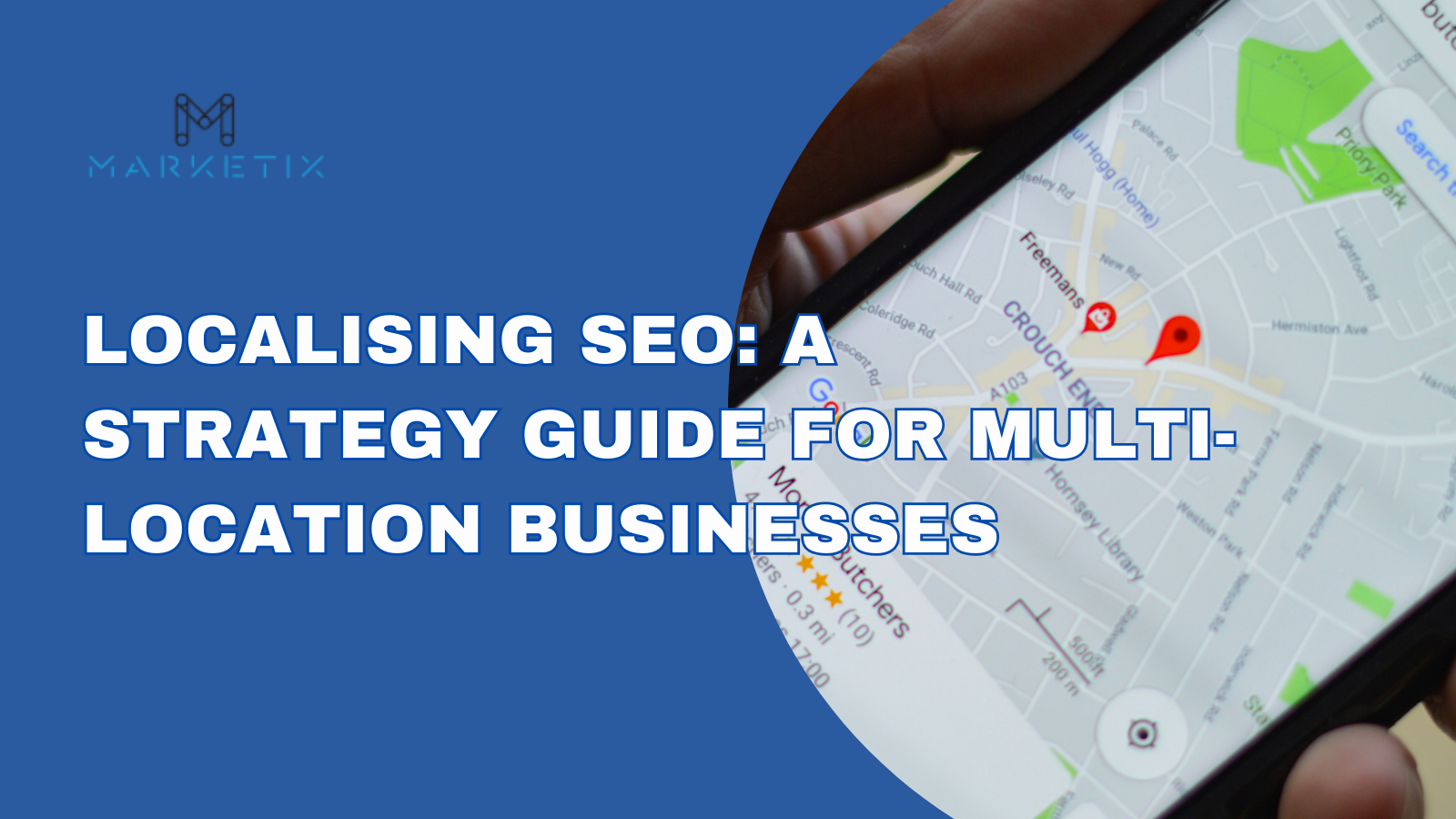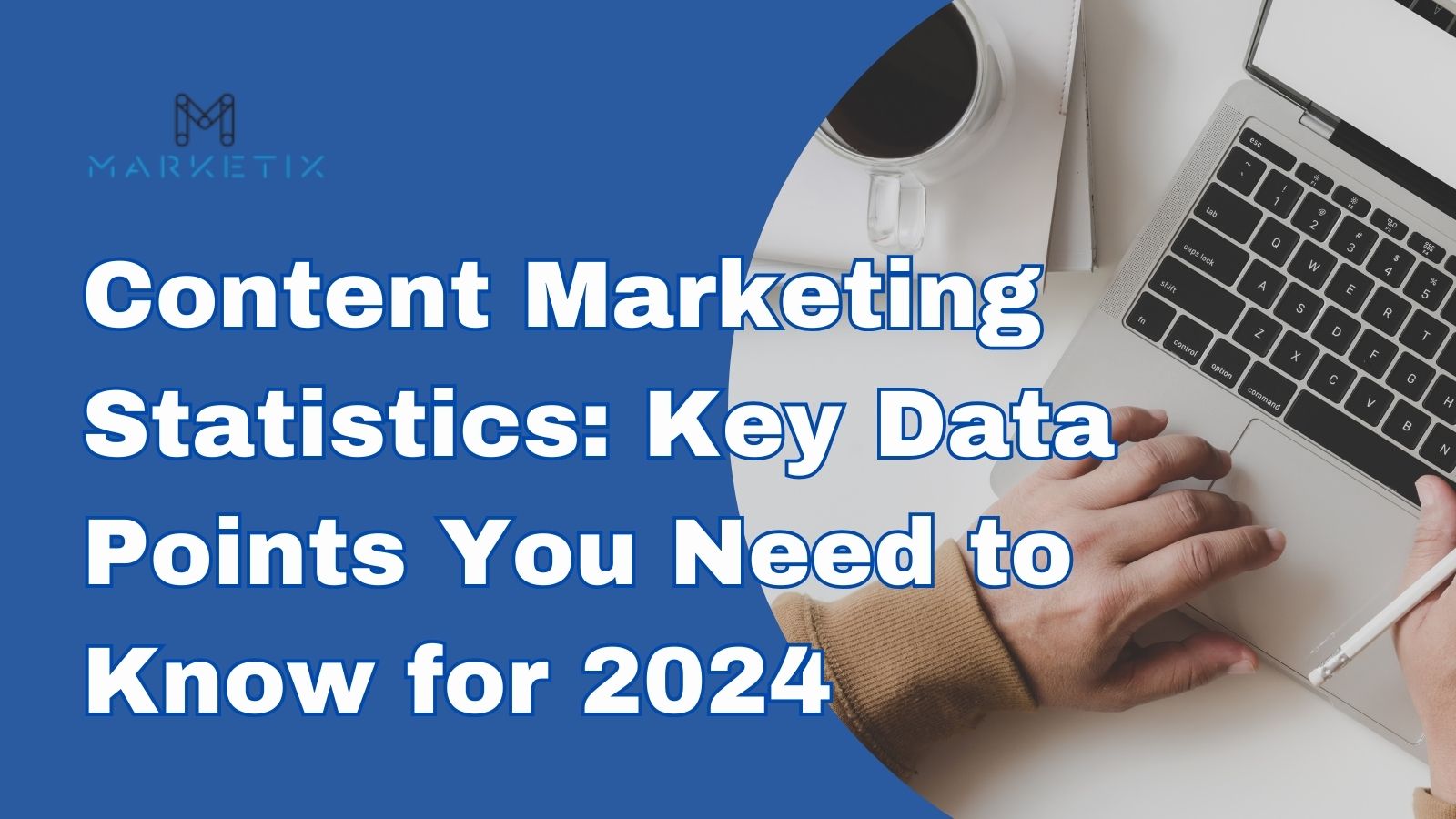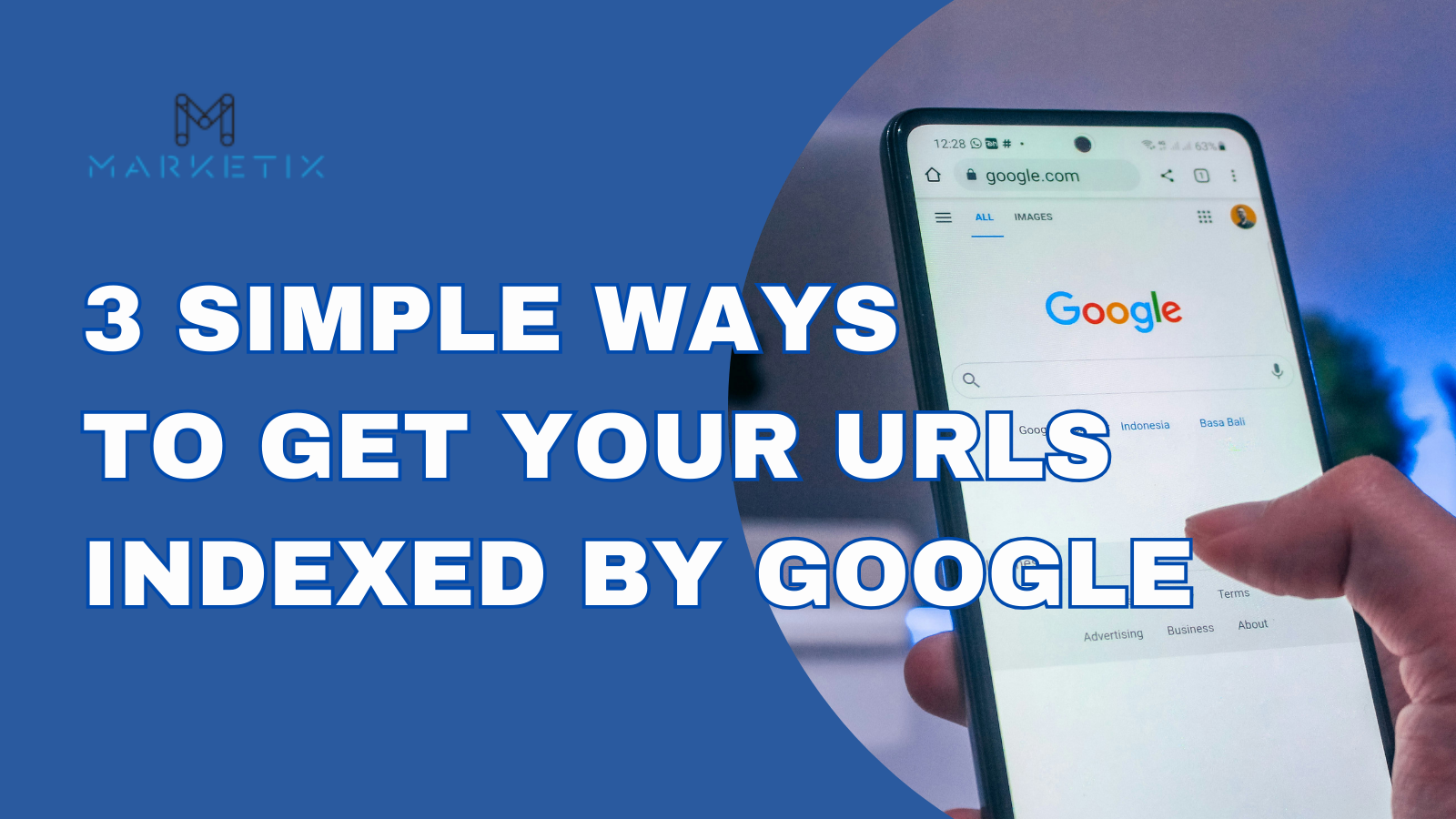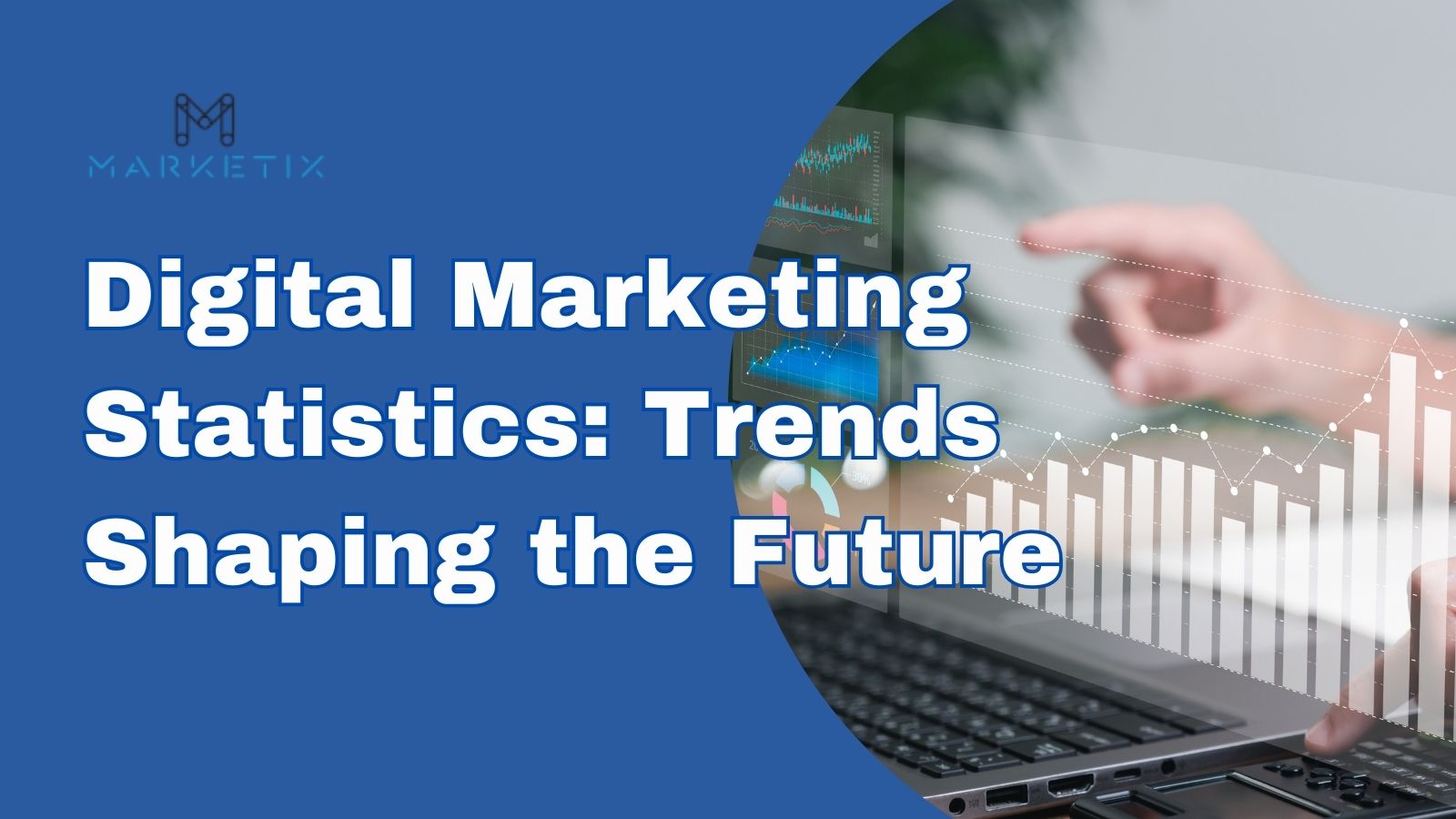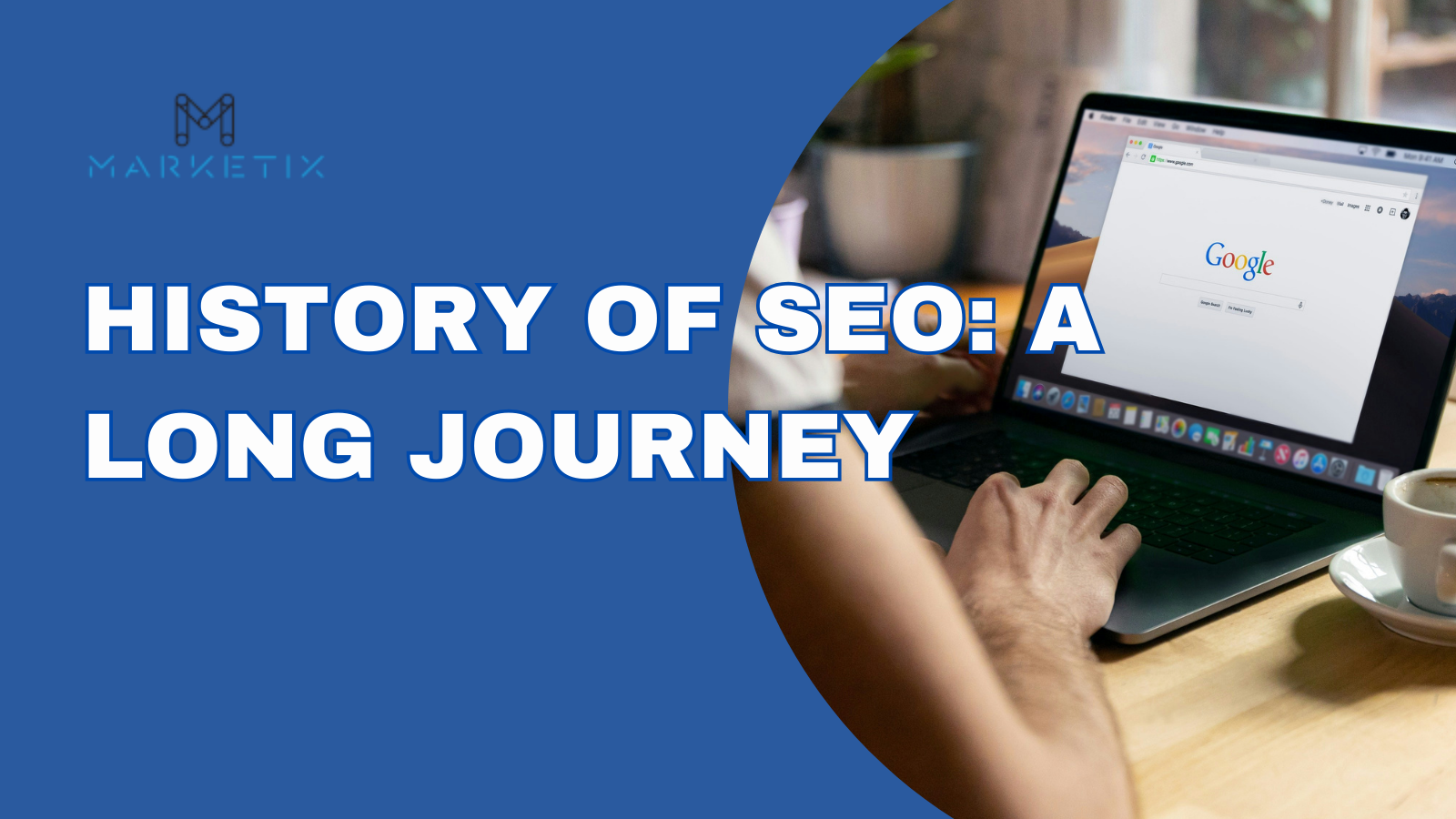B2B Marketing Statistics: Data-Driven Insights for Smarter Decisions
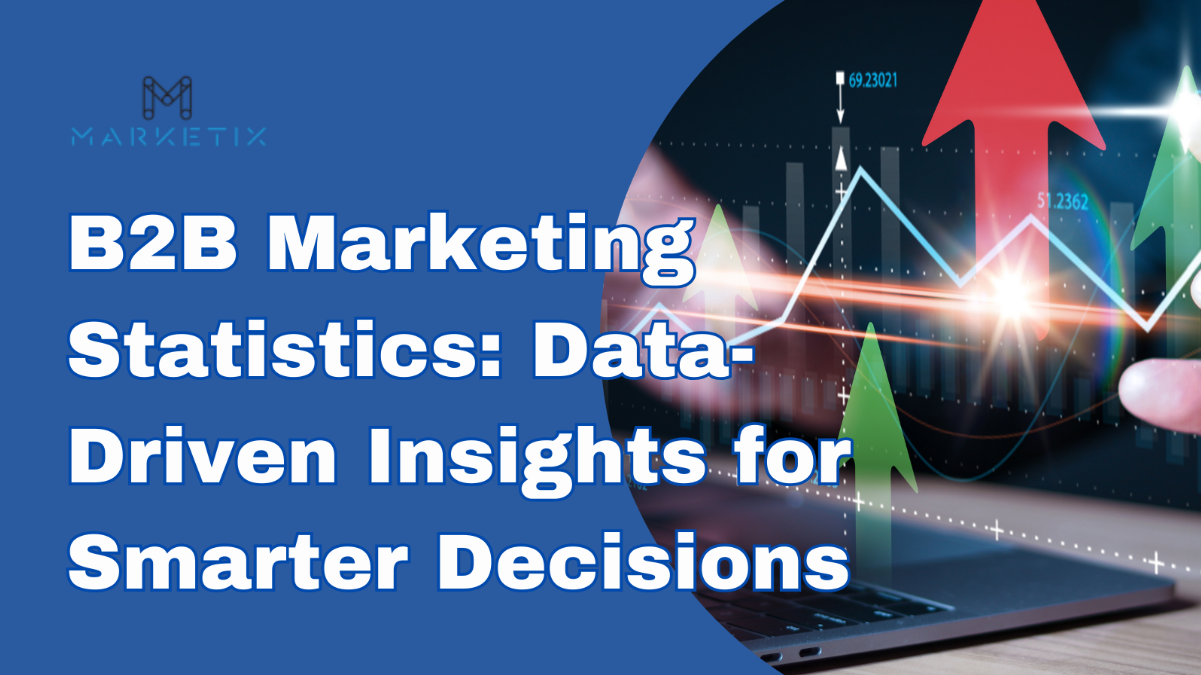
Data shapes better decisions, especially in B2B marketing. Facts don’t lie, and in a fast-evolving market, statistics offer clear direction.
From email success rates to the impact of video, these insights reveal the strategies that work. Use these statistics to shape your next steps and stay ahead of the competition.
Content Marketing in B2B
Content marketing remains a cornerstone for B2B strategies, with 91% of B2B marketers incorporating it into their overall plan. The most successful marketers don’t just rely on content but have a clear roadmap.
In fact, 66% of top-performing B2B marketers use a documented content strategy to stay organised and focused. Additionally, companies that blog generate 67% more leads than those that don’t, showing the tangible impact of consistent, quality content.
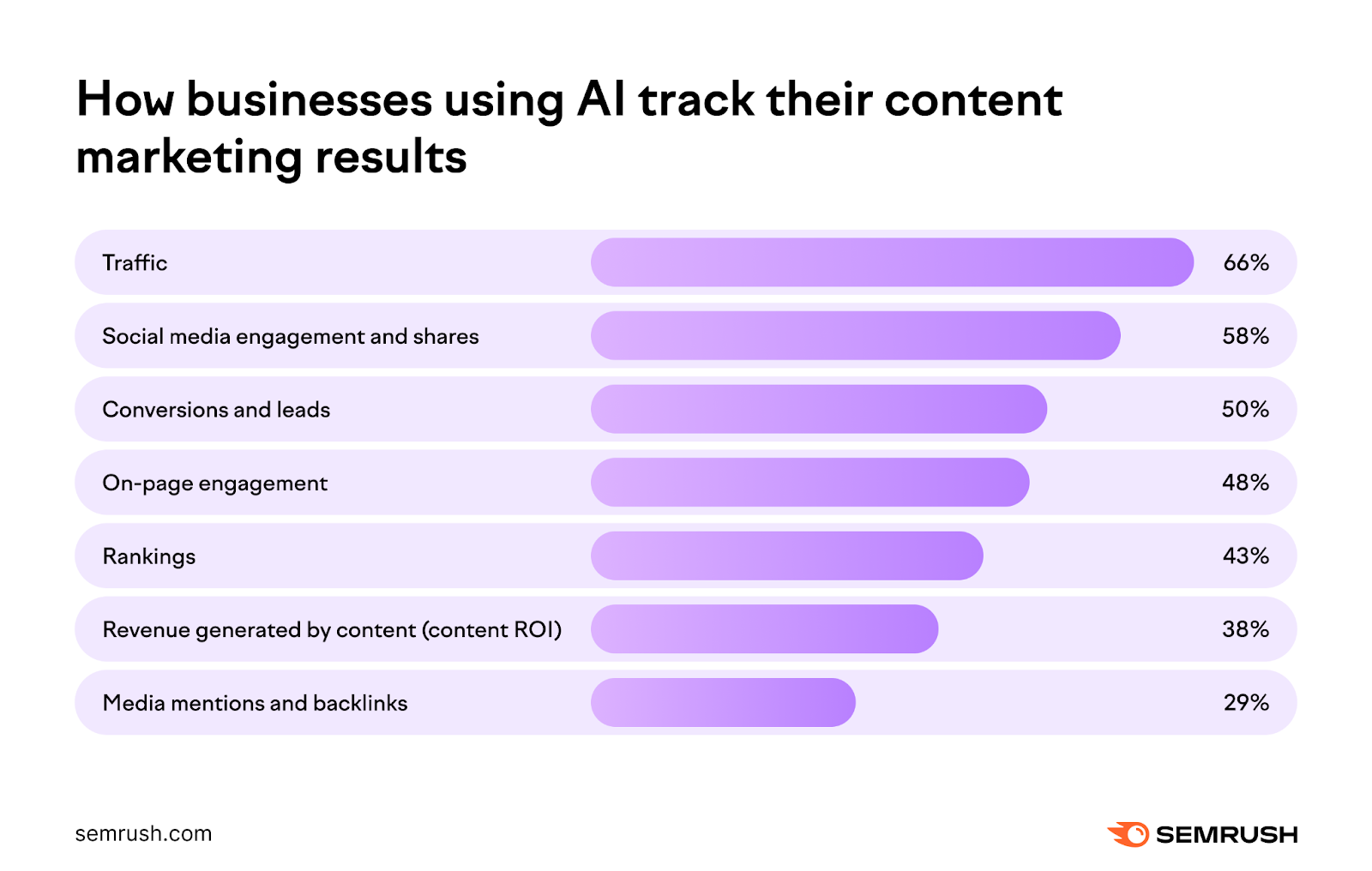
Email Marketing
Email marketing continues to be an important channel for B2B marketers, with 40% considering email newsletters a key driver of content marketing success.
The average email open rate sits at 15.14%, showing that targeted, relevant messaging remains effective. This demonstrates email's enduring relevance in the B2B marketing toolkit.
Social Media and Lead Generation
LinkedIn leads the way as a platform for B2B, generating 80% of B2B leads. Additionally, 94% of marketers distribute content on LinkedIn, making it a crucial part of many strategies.
Beyond LinkedIn, social media ads dominate paid distribution, with 83% of B2B marketers utilising them for lead generation and customer outreach.
The Power of Video in B2B Marketing
Video is now a major force in B2B marketing. 73% of marketers have seen positive ROI from using video content in their campaigns.
Meanwhile, 70% of B2B buyers watch videos throughout their purchasing journey, highlighting video’s role in engaging and educating buyers at every stage.
Account-Based Marketing (ABM)
Account-based marketing (ABM) has been shown to outperform other strategies, with 87% of B2B marketers reporting a higher ROI. In addition, 92% of businesses recognise ABM as a valuable part of their overall marketing efforts, making it a highly adopted approach in the B2B space.
Lead Nurturing and Customer Referrals
Lead nurturing efforts generate impressive results. Companies that excel in nurturing leads see a 50% increase in sales-ready leads at a 33% lower cost.
Additionally, referrals remain a significant factor in the buying process, with 84% of B2B decision-makers beginning their purchase journey through a recommendation.

The B2B Buyer’s Journey and Digital Transition
The majority of the B2B buying process is now digital. Approximately 67% of the buyer’s journey happens online, reflecting the shift towards a more digital purchasing market.
Mobile is also playing a key role, with 70% of B2B buyers significantly increasing mobile usage in recent years.
Webinars and Interactive Content in B2B
Webinars continue to prove their worth for lead generation, with 73% of B2B marketers identifying them as a top source of high-quality leads.
Interactive content also plays an important role, as 81% of B2B marketers say it attracts more attention than static formats, creating a more engaging experience for potential clients.
Search Engine Optimisation (SEO)
SEO plays a pivotal role in B2B marketing, with 57% of B2B marketers reporting SEO generates more leads than any other tactic. Optimising for search engines not only enhances visibility but also connects businesses with potential clients actively searching for solutions.
By focusing on SEO, companies can drive consistent, organic growth while attracting higher-quality prospects. In fact, key B2B SEO statistics further emphasise its effectiveness in lead generation and long-term success.
The Role of Paid Advertising and Influencers in B2B
Paid advertising remains an essential part of B2B marketing, with 76% of B2B marketers reporting steady or increased spending on these channels. Platforms like LinkedIn and Google Ads allow companies to target their audience with precision.
Influencer marketing is equally impactful, with 94% of B2B marketers agreeing that it successfully drives business outcomes, offering authenticity through trusted figures.
AI in B2B Marketing
Artificial intelligence is gaining momentum in B2B marketing, with 80% of B2B marketers predicting AI will transform the field by 2025. AI enhances automation, analytics, and personalisation, making marketing strategies more efficient.
From chatbots to data-driven campaigns, AI tools enable businesses to streamline their marketing while providing deeper insights into customer behaviour.
Sales and Marketing Alignment
Aligning sales and marketing teams leads to significant performance improvements. Companies achieving this synergy experience a 38% boost in sales win rates.
Shared goals and consistent messaging across both teams enable smoother handoffs from lead generation to deal closure, ultimately leading to stronger conversions and revenue growth.
B2B Marketing Budgets
B2B firms typically allocate 10-11% of their overall budget to marketing activities. Regular investment in areas like SEO, paid media, and content marketing sustains growth in a competitive environment.
By dedicating resources to these core areas, businesses can enhance brand awareness and stay ahead of market trends.
Making the Most of These Statistics
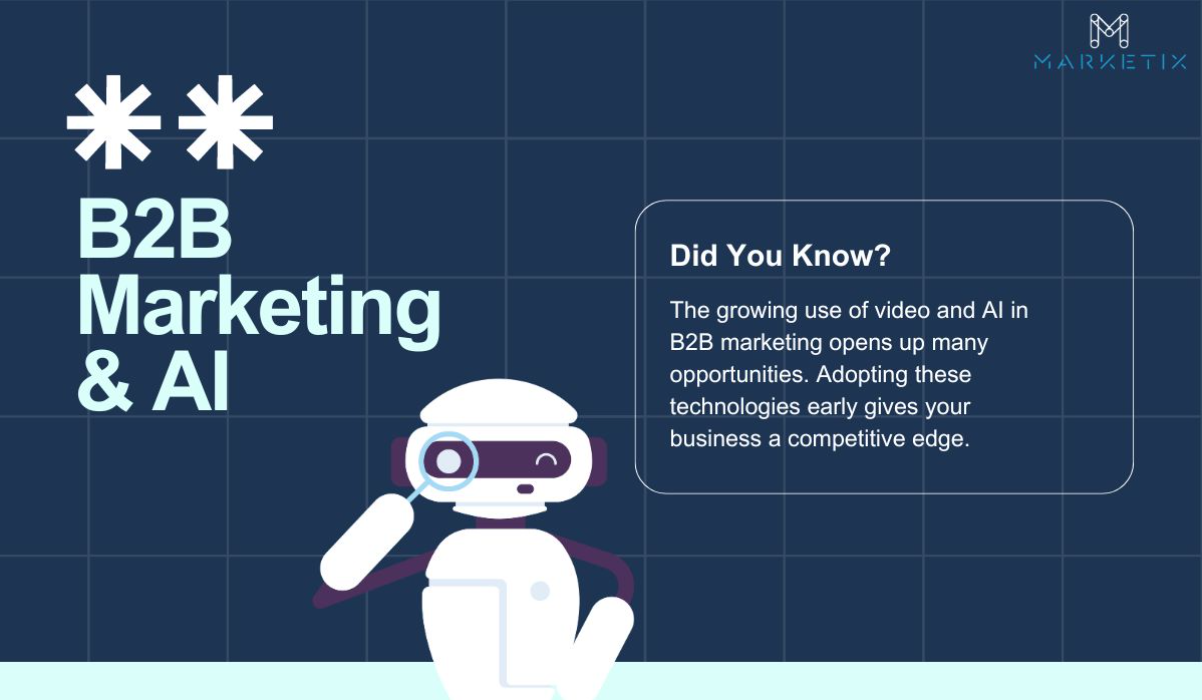
To get the most value out of these statistics, start by identifying which data points align with your marketing goals. If SEO drives the most leads, as shown, prioritising resources towards optimising content and improving search visibility could significantly enhance performance. Focus on the areas where you can make the biggest impact with minimal adjustments.
Next, look at the broader trends. For example, the growing use of video and AI in B2B marketing indicates where future opportunities lie. Adopting these technologies early gives your business a competitive edge, positioning it ahead of slower-moving competitors.
Use statistics to identify where others are succeeding and apply similar tactics to your own strategy.
Finally, don't treat these numbers as static. Regularly revisit these insights to measure your own progress and adapt your strategy as needed. Consistent review ensures that your business remains aligned with market trends, enabling quicker shifts in direction when needed. Staying informed and responsive keeps you ahead in the evolving B2B space.
Ready to Improve Your B2B Marketing?
The numbers are clear. B2B marketing is changing quickly, and businesses using these trends are more likely to succeed. From SEO to video content or AI-driven tools, focusing on these areas can bring real growth to your business.
Make your marketing stronger with a clear plan based on facts. Using these statistics helps you reach your audience better and improve your results. Staying ahead means following what works best.
Need some help? Get in touch with Marketix Digital today and start building a marketing strategy designed to grow your business.
Recent Posts
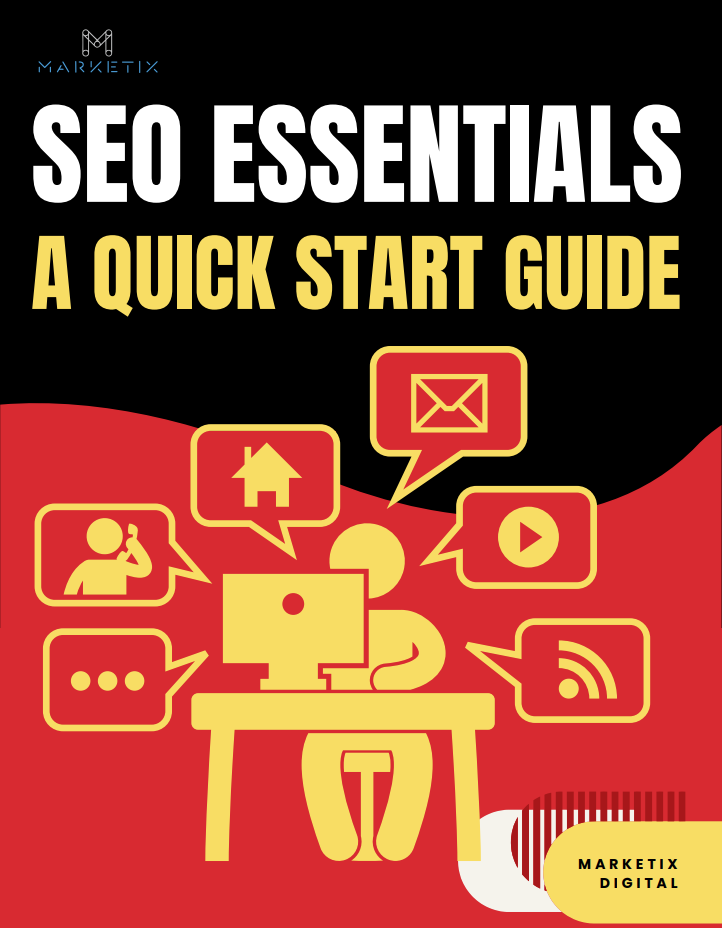
Free Download SEO Book
Download our 24-page SEO book to learn:
- How SEO Really Works
- How to Rank #1
- Content & SEO
- Choosing an SEO Agency
Thank you!
You have successfully joined our subscriber list.
Recent Posts

